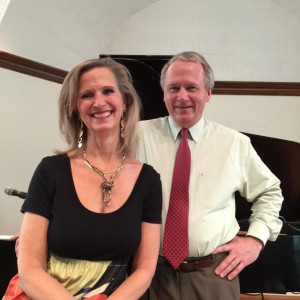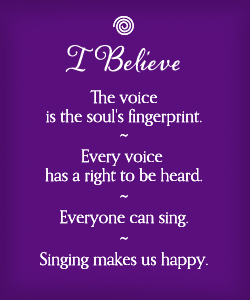For our annual Valentine’s concert, Kent Allyn and I traveled to exotic locales – deserts, islands and
any place that had water – Beyond the Sea, the Blue Bayou, and, of course, Midnight at the Oasis. In 1973, reviewer Matthew Greenwald said that Maria Muldaur’s saucy song, “may have been responsible for the most pregnancies from a record during the mid-70s.”
Preparing for this concert always makes me nervous. For the last two years, I’ve gotten a cold the week before the performance, a sure sign of stress. I love this concert. I love the process of picking music. I love rehearsing and creating arrangements with Kent. I love having the songs fill my body and brain for a month. What makes me nervous is that I know most of the people in the audience. I will see them in the hall of the Music School or at the bank, in the Coop or at a café for coffee. They are my friends.
This fact is also what allows me to relax. At 12:10pm on the second Thursday of February, my friends joined me to celebrate Valentine’s Day with songs of love. Afterwards, a friend, Emily, said to me, “It’s like we’re sitting around a living room together having a conversation and fabulous music.” This give and take with the audience has made me aware that I don’t need to perform. All I need do is be present, sharing songs that I love.
I have sung all my life. Children don’t “perform.” They sing for joy. The concept of performing probably crept into my consciousness when people began telling me what a lovely voice I had. By junior high I was soloing in church. Singing was still fun, but the effort to live up to expectations further reinforced the need to perform. Just singing was not enough.
Performance is a common word used to describe what people do on stage for an audience. But performance can also mean a separation of self and “performer,” in which the self –I- watches the performer – singer-me – perform, put on a show, don the mask of performer and, hopefully, give a good performance. That is how I have sung for a large part of my life, but I was always aware that the space between me and the singer-me made me uncomfortable, nervous, and disconnected from myself.
If I believe that a concert relies solely on me – my voice, my technique, my ability to express the song, my performance, then the weight of all those expectations can be nerve-wracking. That viewpoint assumes I have no help. I give – the audience receives. But if I believe that a concert is a conversation between the audience and me, that there is a give and take of energy, presence and breath, then the pressure is off me to deliver the whole experience. We are in this together. We both give. We both receive.
In solo performance mode, my primary support is what I can personally generate. In
conversation mode, support comes from everyone. I may be the initiator, but I am not alone. Which is what I have been feeling in the last few years of these concerts. I am sharing great love songs with friends. I get to prepare and enjoy the support and engagement of everyone present.
This is one of the silver linings of age and experience. I have learned that I am connected to my audience no matter what words I forget or mistakes I make. Singing and making music create the vibrations that join us together.


Speak Your Mind